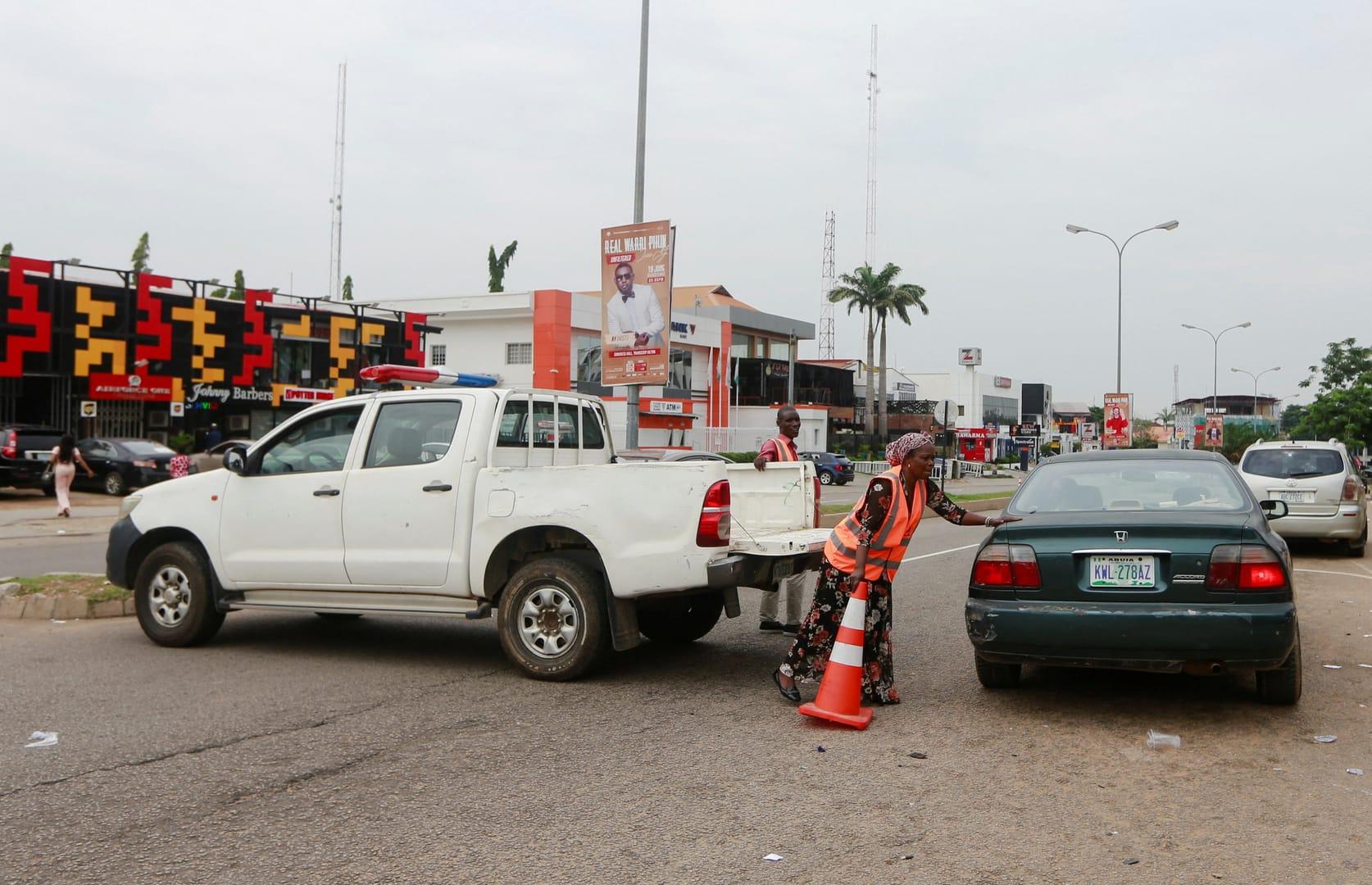At least five people are dead in Damboa, Nigeria, after suspected Islamic militants fired a rocket-propelled grenade into the northeastern town fifty miles south of the regional capital, Maiduguri, on Friday. Reports say at least eleven others were injured in the attack, which apparently also saw scores of Jihadist fighters attempt an incursion into the town.
Agence France Presse reported Sunday that anti-Jihadist militia operating alongside regular Nigerian government forces pushed back the invasion attempt outside the town. A spokesman for the militia called the RPG attack on the town “an act of desperation,” launched “from a distance.”
In northeastern Nigeria, Boko Haram and other rival Jihadist groups not only terrorize local residents, but also fight each other, as well as government regulars and militia forces. Insurgencies in Nigeria’s northeast have been operating for nearly fifteen years and have killed as many as 40,000 people. More than 2 million others have fled their homes.
Nigeria is a country divided sharply along religious lines, between Muslims who live mostly in the north, and Christians in the south and south-east. There is a minority – between 1.5 percent and 7 percent, according to different demographic studies – who practice local traditions. Tribal, ethnic, and religious rhetoric frequently accompanies electoral campaigns and politics.
Violence in Nigeria continues to be especially hard on Christians throughout the country.
Aid to the Church in Need has recently predicted a mass exodus of Christians – especially young people – if the security situation in the country does not improve drastically and soon. Nevertheless, there is growing consensus both in Nigeria and among international monitors that the government is complacent in the face of the violence, if not complicit.
“If the Nigerian authorities do not address the conflicts concerning land, ethnicity, criminality, and religious extremism,” said Maria Lozano of Aid to the Church in Need, “as well as the breakdown in democratic values and the equal rights of its citizens including religious freedom, the cancer of Islamist jihadism and political disintegration evident in the northern half of Africa will spread.”
Lozano was on the team that edited ACN’s 2023 Religious Freedom in the World Report, which notes in its country analysis on Nigeria that religious freedom in the west African nation of 200 million is gravely threatened, “principally as a consequence of legal measures that support the discrimination against Christians in the northern states as well as severe and relentless atrocities committed throughout the country.”
The 2023 ACN Report notes that victims of violence are predominantly Christian, though there are Muslims and persons who practice traditional religions among those who suffer as well. “[R]eligious leaders and faithful,” the report says, “suffer at the hands of the terrorists – national and transnational jihadist and criminal armed groups.”
The militant Islamic group, Boko Haram, is one well-known group that has been waging an insurgency for more than a decade in Nigeria. In addition, herdsmen frequently conduct armed raids in rural areas. Central and northwestern Nigeria have seen waves of kidnappings, frequently for ransom and other times for purposes of human trafficking.
A recent spate of attacks against predominantly Christian towns and villages in Nigeria’s Middle Belt has drawn some international attention, highlighting the protracted plight of Christians throughout the country.
Particularly gruesome violence visited the Middle Belt state of Benue, Nigeria, during Holy Week this year. Fulani herdsmen killed scores of people over several days. “It has become a norm for a day to not pass without hearing of one or two attacks,” Father William Shom told Crux at the time.
Bishop Wilfred Anagbe of Makurdi diocese in Benue was recently in the United States to raise awareness of his people’s suffering.
A guest of Aid to the Church in Need-US, Anagbe told of the suffering inflicted on his people and others by Fulani herdsmen who prey on predominantly Christian farmers who work the land of his fertile and historically productive region. Thousands of people have perished in attacks since 2014.
The Fulani are not indigenous to the region, according to Anagbe. “These are invaders,” he told Our Sunday Visitor, “who come and kill the people, and send them away, and occupy their territory.”
“[The Fulani] are conquering and destabilizing the Indigenous communities, and conquering their territories,” Anagbe also told OSV.
“People are leaving,” Anagbe told the Catholic News Agency during his recent US visit. “They are living as refugees but in this case, they are refugees in their own country, in their own state,” Anagbe said. “They don’t know where to go,” he also said.
In recent months, Fulani raiders operating in Nigeria’s northern Plateau State have reportedly conducted several attacks that have claimed hundreds of lives.
Archbishop Ignatius Kaigama of the capital archdiocese, Abuja, told Crux ahead of the general elections in February that Nigerians were looking not so much for a president and legislators who tracked with their own demographics, as they were searching for “God-fearing, honest, vibrant, and transparent leaders for a better Nigeria.”
Nigeria’s Bola Tinubu won the presidency on promises to reform the country’s security apparatus and grow the economy, but debt pressure and high unemployment, as well as persistent poverty and food insecurity – none of which are helped by the ongoing security crisis – make reaching those goals an uphill battle.













